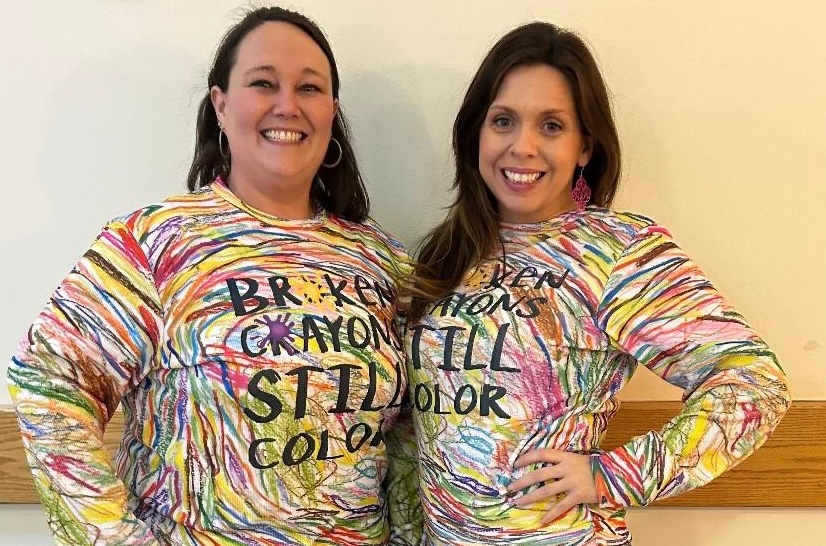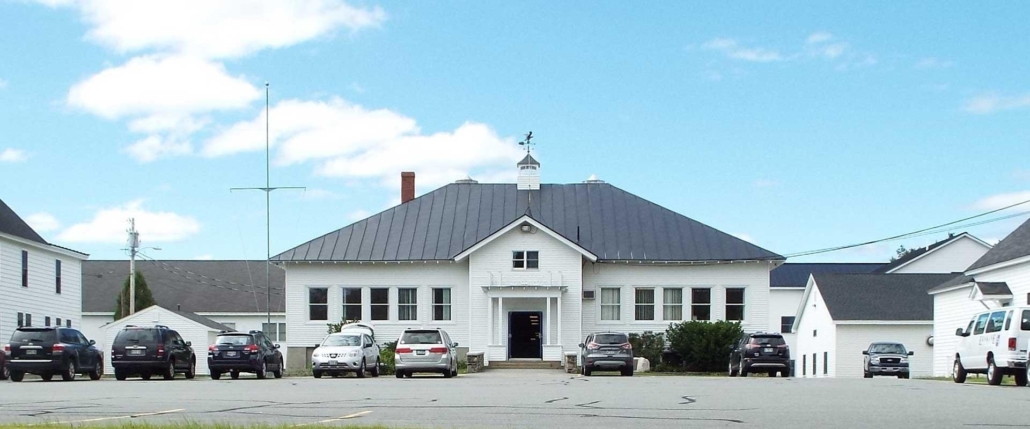VCS counselors have more than enough work, Part 1
Part 1
by Mary Grow
Why, several people have asked recently, does Vassalboro Community School (VCS) have not one, but two, school counselors?
The answer offered by counselors Jamie Routhier and Gina Davis is that there is more than enough work for both of them.
VCS has about 420 students – the number varies slightly as families move out of and into town – in grades from pre-kindergarten through eight. Davis is responsible for grades pre-k through three, Routhier for grades four through eight.
Their responsibilities fall roughly into two categories. One is work they do directly with students and staff. Their main focus is on students who are at risk, academically or socially or both, but who do not need special education services. They also work with special education students.
Both women have years of teaching experience (41 between them, Routhier said), and they still teach classes. They also meet with small groups and individuals and are involved in crisis management.
Confidentiality rules prevent school staff from discussing crises publicly. They vary from unhappiness and personal distress to disturbances and disruptions to, occasionally, life-or-death situations.
The second category of work Routhier and Davis do is importing and overseeing outside organizations and activities that benefit students. Subjects are as varied as an on-line safety program in collaboration with the Maine State Police; a mentoring program with Colby College students; and providing students and their families with food (FoodBag) and personal and household items (the Cares Closet).
Both types of work involve time-consuming record-keeping and report-writing. The goal of all they do, Routhier summarized, is to make it possible for students to be successful in the classroom setting. This goal involves not just academics, but also dealing with personal and family issues that interfere with a student’s ability to focus on schoolwork.
During the spring term, Routhier also functions as the traditional school guidance counselor, helping eighth-graders decide what high school to attend. Vassalboro has no town high school and offers school choice.
As of the spring of 2025, Davis is teaching 14 classes a week for pre-kindergarten through third grade students. A typical class runs 30 minutes; class size varies from 13 to 18 students.
Routhier teaches 13 classes a week for students in grades four through eight. Hers are usually 40 minutes; her smallest class has 15 students, the largest 23.
Each counselor’s schedule includes two daily classroom lessons that are called SEAL class. SEAL, Routhier explained, stands for Social Emotional Academic Learning.
In a presentation to the school board in December 2024, Davis and Routhier explained that SEAL is a national program designed to help students understand and control emotions, focus attention, learn problem-solving skills and develop empathy.One part of SEAL includes “Skills for Learning, Empathy, Emotion Management, Problem Solving, Community, Perspective.” The other “creates long-term impact by teaching about the emotional center of the brain.”
Both counselors sometimes work with special education students and therefore are involved in IEP (Individualized Education Program) and 504 program meetings. These two types of plans are mandated by federal law. A 504 program is for a student who needs accommodation to access educational facilities; an IEP is developed to meet a student’s unique learning needs.
Counselors and teachers have the legal and ethical responsibility to report to the state Department of Health and Human Services (DHHS) whenever they see something that concerns them about a student. Routhier said because teachers are less familiar with the reporting process, they often ask one of the counselors for help.
Each report requires detailed information; has to be done the same day as the observation that inspired it; and leads to additional communication with DHHS personnel and follow-up with appropriate other school personnel and with the student’s family.
“Rarely is there a time when one or both of us are not involved in multiple DHHS cases at a time, all year long,” Routhier said.
Davis and Routhier also provide training sessions for teachers and educational technicians at VCS. And they talk with students’ families, answering questions about the school in general and the family’s student or students specifically.
Annually from December through the following May, Routhier helps VCS eighth-graders plan their next four years. This piece of her work “could truly be considered an additional part-time job,” she said, because it is so complicated and time-consuming.
Choices available to VCS students include, but are not limited to, Winslow and Waterville high schools in those municipalities, Cony High School, in Augusta, and Messalonskee High School, in Oakland; Erskine Academy, in South China; Maine Arts Academy, in Augusta; and Maine School of Science and Mathematics, in Limestone.
Starting in January, Routhier organizes presentations at VCS and students’ visits to nearby schools. Then she helps each student enroll in the school he or she has chosen, including advising on course choices, based on each student’s strengths and interests.
Enrollment is supposed to be complete by April 1. In practice, not every student is set by then, so Routhier’s work continues well into May.
What a list of counselors’ responsibilities does not show is how often Davis and Routhier are interrupted by student crises and by urgent requests from colleagues and parents. As Davis put it, a demanding part of her job is balancing daily classroom lessons with responses to individual student behavioral needs.
Next week: major activities that counselors Routhier and Davis coordinate with out-of-school groups.
Responsible journalism is hard work!
It is also expensive!
If you enjoy reading The Town Line and the good news we bring you each week, would you consider a donation to help us continue the work we’re doing?
The Town Line is a 501(c)(3) nonprofit private foundation, and all donations are tax deductible under the Internal Revenue Service code.
To help, please visit our online donation page or mail a check payable to The Town Line, PO Box 89, South China, ME 04358. Your contribution is appreciated!






Leave a Reply
Want to join the discussion?Feel free to contribute!